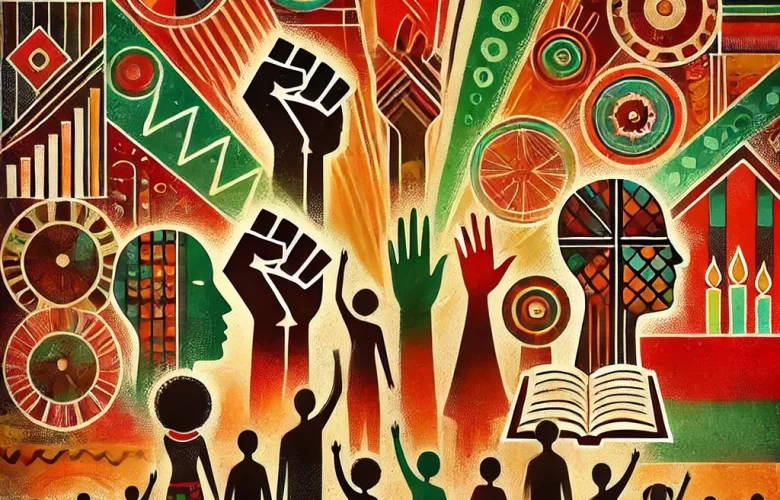In a time when efforts to erase or diminish diversity, equity, and inclusion (DEI) initiatives persist—most notably through former President Donald Trump’s executive order to curtail governmental observance of events such as Black History Month—we stand firm in our commitment to celebrate and honor Black history. The beauty of diversity and the contributions of people of color are woven into the fabric of our society. Black History Month is not just a time for reflection—it’s a celebration of resilience, innovation, and the enduring spirit of a community that has shaped the world in countless ways.
The Origins of Black History Month
Black History Month began as “Negro History Week” in 1926, founded by historian Carter G. Woodson. Woodson, often called the “Father of Black History,” sought to ensure that the history of African Americans was recognized and taught. The week eventually expanded into a month, officially recognized in 1976, becoming a time dedicated to acknowledging the struggles, achievements, and cultural impact of Black individuals throughout history.
Trailblazers Who Changed the World
Throughout history, countless Black individuals have paved the way for progress, breaking barriers and inspiring future generations. Here are a few remarkable figures whose legacies continue to shape our world:
- Harriet Tubman: Known as the “Moses of her people,” Tubman escaped slavery and led hundreds to freedom through the Underground Railroad, embodying courage and selflessness.
- Martin Luther King Jr.: A civil rights leader whose advocacy for racial equality through nonviolent protest changed the course of American history.
- Rosa Parks: Her refusal to give up her seat on a segregated bus in Montgomery, Alabama, ignited a nationwide movement for civil rights.
- Frederick Douglass: An abolitionist, writer, and orator who championed the rights of both African Americans and women.
- Maya Angelou: An acclaimed poet, author, and activist whose words continue to inspire people worldwide.
- Barack Obama: The first African American president of the United States, symbolizing progress and possibility.
Celebrating Modern-Day Heroes
Black History Month is also a time to recognize contemporary individuals who are breaking barriers and driving change:
- Stacey Abrams: A political leader and voting rights advocate whose work has helped expand democratic participation.
- Amanda Gorman: The youngest inaugural poet in U.S. history, using her voice to inspire hope and unity.
- Kamala Harris: The first female, first Black, and first South Asian Vice President of the United States.
- LeBron James: An athlete and philanthropist dedicated to social justice and educational equity.
- Beyoncé Knowles-Carter: A global icon who champions Black culture, feminism, and empowerment through her music and activism.
The Power of Representation
Representation matters. Seeing individuals who look like us achieving greatness empowers people of all backgrounds to dream bigger. Black artists, scientists, educators, athletes, and leaders continue to redefine what is possible, breaking down barriers that once seemed insurmountable.
Why We Celebrate
Black History Month is more than a collection of stories—it is a testament to the strength of a community that has faced systemic oppression and still thrives. It is a reminder that history cannot and should not be erased. Diversity is what makes our society vibrant and strong. Recognizing the contributions of Black individuals is essential not only during February but throughout the year.
Moving Forward
As we celebrate Black History Month, let us reaffirm our commitment to justice, equality, and inclusion. Let us honor the past while working toward a future where every individual, regardless of race or background, is seen, valued, and empowered. The lessons of history teach us that progress is possible—and it begins with acknowledging and celebrating the diverse voices that shape our world.
Together, we can ensure that the legacy of Black history is not only remembered but continues to inspire future generations to create a more just and compassionate world.


